Podcasts
Welcome to The Institute, a podcast where we profile the fascinating people connected to the Institute for the Arts and Humanities at The University of North Carolina at Chapel Hill. We talk with faculty about the pillars of their work in teaching, service and research. We learn the makings of successful leaders across disciplines. And we share this with you.
Subscribe on Apple Podcasts or Spotify.
Elizabeth Engelhardt, Professor, American Studies
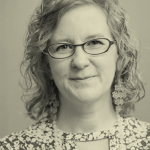
Faculty Fellow Elizabeth Engelhardt is looking closely at the history and culture of boarding houses in the U.S. South.
“The difference between a boarding house and a hotel, between a boarding house and a brothel… restaurant, kitchen, a cafe, diner, all of those things is incredibly messy,” she says. “In my mind, that’s where the really interesting research questions are.”
Todd Ochoa, Associate Professor, Religious Studies
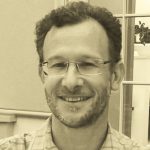
Todd Ochoa is an anthropologist who focuses on religion. This semester the former New Faculty Program director is teaching Introduction to Religion and Culture to 180 students as well as a graduate course, Religion in Postcolonial Americas. Ochoa explains that religious studies is not the same as theology. Rather than focusing on particular faiths and texts, religious studies examines the people and cultures, the human relationships and dynamics.
Mariska Leunissen, Associate Professor, Philosophy
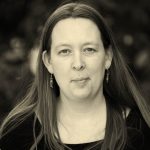
Faculty Fellow Mariska Leunissen discusses her unique perspective on the philosophy of Aristotle, especially his foundational text on biology. She provides insight on how we can apply his work to our modern lives by examining his morally reprehensible views in the context of the time. “I don’t want to necessarily better his picture, but I do want to understand where they come from. [Some of them] do seem to be deeply ingrained in Western culture still.”
Andrew Perrin, Professor, Sociology

“Humanities mode of thinking is unique. It really values complexity,” says Andrew Perrin. “It’s a very different way of thinking from STEM scholars and social science scholars.” It is these mechanisms that have compelled Perrin to look at “how scholarship and humanities would contribute to democratic citizenship.” He finished a Faculty Fellowship in Spring 2016, where he researched humanities education and its impact on citizenship.
Mai Nguyen, New Faculty Program Director
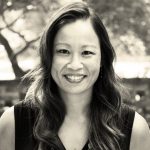
City and Regional Planning Associate Professor Mai Nguyen is the New Faculty Program Director at the IAH, effective July 1. She succeeds Associate Professor of Religious Studies Todd Rámon Ochoa, who served in the position for 3 years. “My goal with the new faculty program is to help faculty integrate into the academic life at UNC and to become aware of the many professional and social opportunities available at UNC and in the Triangle Region.”
Michael Gerhardt, UNC School of Law Professor
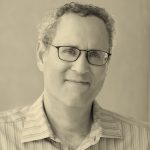
Michael Gerhardt called it months ago. The Samuel Ashe Distinguished Professor of Constitutional Law said the Republicans would choose Donald Trump as their nominee and this week Hillary Clinton is expected to accept the Democratic nomination. Gerhardt’s most memorable moments in teaching are linking world events in the classroom. “In law there are always some current issues, we just don’t know what those are going to be.”
James Moeser, Acting IAH Director and Chancellor Emeritus
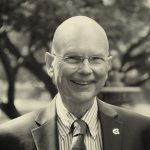
“The faculty is at the heart of what we are about as a university” James Moeser said. “The administration exists to facilitate the life and work of the faculty and a student’s learning.” He served as UNC Chancellor from 2000 to 2008. Moeser recalls his first class after administrating for many years was the first-year seminar on music and culture. The fall semester was always the most exciting. Students were “very open and very receptive.”
Kathleen DuVal, History Professor
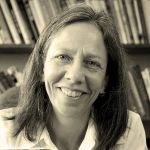
UNC History Professor and Faculty Fellow Kathleen DuVal discusses teaching and her award-winning book Independence Lost: Lives on the Edge of the American Revolution. But DuVal really lights up when discussing Carolina students. “They are smart and well-educated and ready to learn something new,” She said. “Every semester I get so many delights.”
Jane Thrailkill and Jordynn Jack at the HHIVE
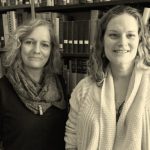
“A mingling of the health sciences with the text tools, critical techniques of the humanistic disciplines,” is how Jane Thrailkill describes the work of the Health Humanities: An Interdisciplinary Venue for Exploration (HHIVE) at UNC. Thrailkill is the director and, together with and Jordynn Jack as associate director, they work to unite faculty in students to merge health science and the humanities.
Suzanne Gulledge, Director, Academic Leadership Program
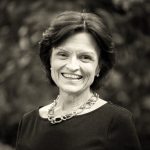
Suzanne is clinical professor of Teacher Education, Curriculum and Instruction, International and Experiential Education and former chair of the faculty in the School of Education. Effective July 1, 2016, she began as the new director of the Academic Leadership Program.
Kim Strom-Gottfried, Director of Ethics Education and Policy Management
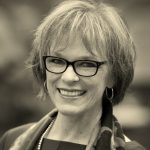
“Leadership can be a very lonely place,” Kim Strom-Gottfried says. “[Leaders] have to make decisions and hold confidences.”
In an interview with Michele Berger, director of the Faculty Fellows Program, Strom-Gottfried, who is also the Smith P. Theimann Distinguished Professor of Ethics and Professional Practice at the School of Social Work, talked about what changes in leadership trends she’s observed in the eight years she facilitated 64 faculty members through ALP.
Mark Katz, Director, Institute for the Arts and Humanities
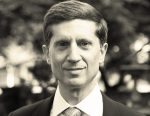
Mark Katz discusses his work as music professor and director of the Institute, as well as his position as director of the Next Level, a U.S. State Department program that brings hip-hop to serve as cultural diplomacy internationally.
Oswaldo Estrada, Associate Professor of Spanish
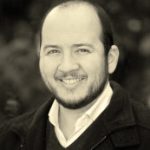
Associate Professor Oswaldo Estrada is no stranger to the classroom. He joined the Faculty Fellowship as the recipient of the Chapman Family Teaching Award. He says that it’s a blend of “preparing a lot” for a class and “being flexible” that allows him to bring his best as an educator. As the son of Peruvian immigrants, his family had pushed him to more lucrative ideas for professions, but Estrada felt called to life as a humanities scholar.
Glenn Hinson, Associate Professor, Folklore and Anthropology
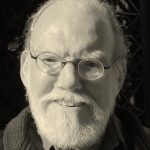
The difference between a toast and a poem was clear to Horace “Spoons” Williams, who readily shared this with in the mid-1980s with Glenn Hinson. Hinson, an Institute for the Arts and Humanities Faculty Fellow, later learns that this conversation was a “very humbling moment” that “transformed the path” of in his scholarly work of African-American and working-class culture.
Rob Kramer, IAH Senior Leadership Consultant
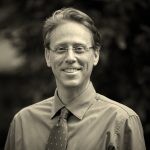
Rob Kramer brings a breadth of experience in coaching business and academic leaders, teams, and executives through his firm Kramer Leadership. Kramer has worked at the Institute for 6 years; he facilitates both the Academic Leadership Program and the Chairs Leadership Program. He discusses how mindfulness is an important tool for busy leaders.

